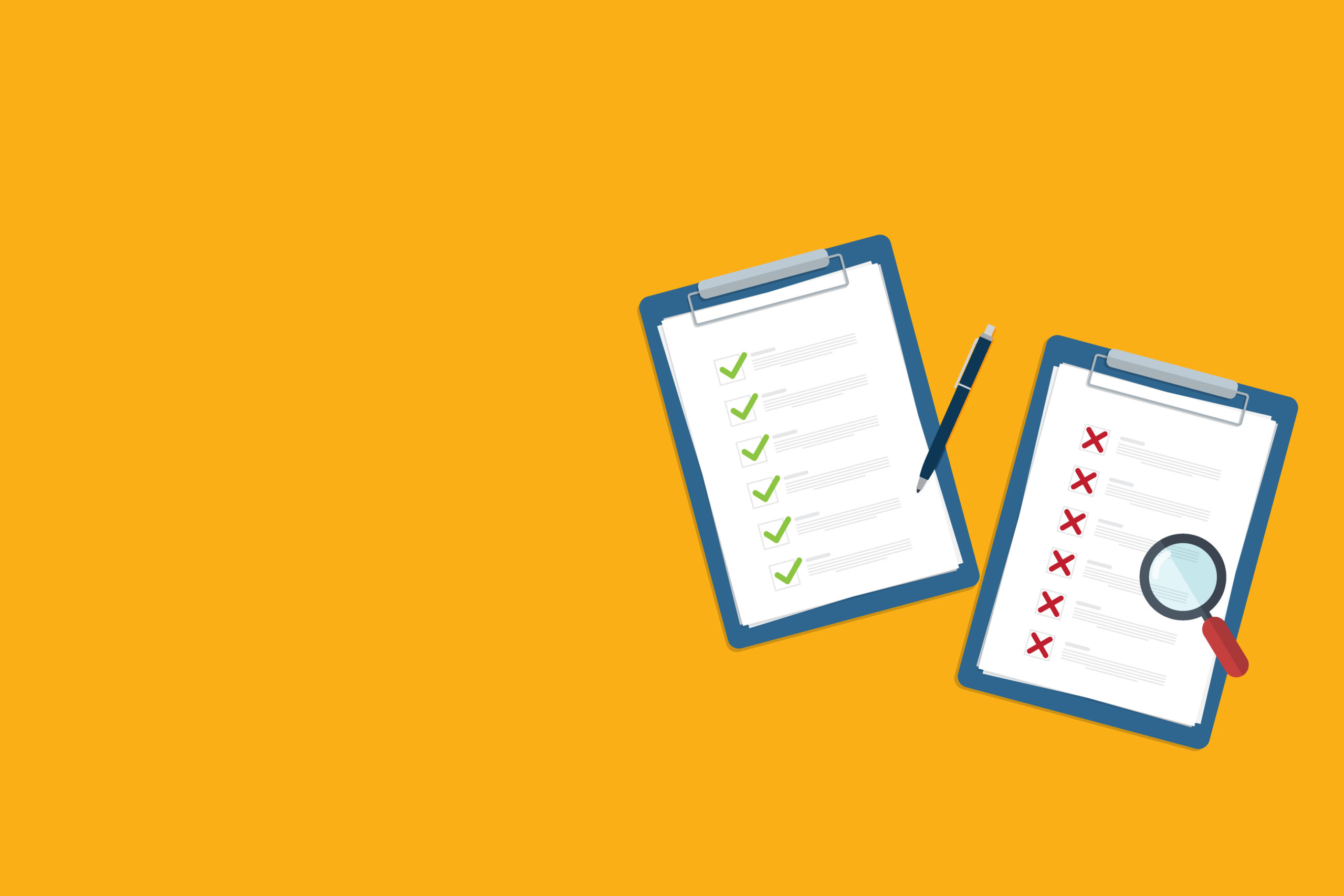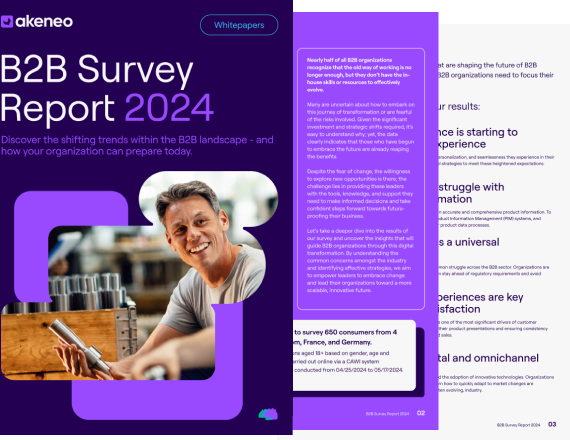Navigating today's regulatory landscape can feel overwhelming for B2B brands, but it doesn't have to be. Discover how a proactive compliance strategy, driven by centralized data, can help B2B businesses not only meet today's regulatory demands but also unlock new opportunities and stay ahead of the curve.

Keywords
For B2B brands, today's regulatory landscape can feel like navigating a complex, never-ending maze. In our latest B2B survey, we found that nearly half of B2B companies cite regulations as one of their organization's biggest challenges.
On top of that, we found that almost all (99%) of B2B companies face multiple hurdles in staying compliant with local, regional, or industry-specific regulations. From supply chain management to automation to data security and privacy, consistently maintaining compliance is paved with challenges.
In this context, creating a single, centralized source of truth for product information would enable B2B businesses to stay compliant with current and emergent regulations while staying agile enough to prepare for future changes.
Let’s take a look at just a few of the benefits of a centralized data system and how B2B organizations can stay up-to-date and compliant with some of the most challenging regulations, including Digital Product Passport legislation and ETIM classification.
For years, B2B companies approached compliance with a reactive mindset - doing so to avoid fees and stay out of legal trouble. But today's complex regulatory environment requires organizations and business leaders to view compliance as a strategic priority so they're no longer at a disadvantage and playing catch-up with competitors or the latest requirements.
Still, nearly every B2B company is grappling with compliance challenges, often due to the sheer volume of regulations and the need to adapt quickly to new requirements, including:
These issues are further complicated by the fact that regulations are a living, breathing entity that often evolve at the whim of technology developments or when public fervor over technological advancement reaches unprecedented heights. B2B organizations and their leaders need to strive for a straightforward, proactive approach to compliance rather than remaining reactive.
To better understand these challenges facing B2B organizations and why a centralized repository for data is needed, let's explore a few emerging regulations that will reshape how B2B companies operate in the years to come.
Digital Product Passports are designed to provide consumers and business partners with highly detailed insights into a product's entire lifecycle, including where its materials come from, how it was produced, and how it can be disposed of responsibly. Information like a unique identifier, material data, sustainability, and repair data will have to be shared, in addition to the basic but still mandatory product name, product model, manufacturing place and date, and warranty details.
Essentially, a DPP is a digital record containing comprehensive information and details about products through its lifecycle. The latest updates to DPP regulation now require companies to provide detailed data on the product’s repair history, reusability, resource efficiency, and details on any potentially hazardous substances. With this updated regulation, the EU is working towards ensuring maximum visibility, transparency, and durability for products.
ETIM Classification is a standardized system for classifying technical products, particularly in the electrical and building industries. With ETIM, products are assigned specific attributes to make it easier for manufacturers, distributors, and retailers to manage product information more consistently.
Updated versions of ETIM are released regularly, requiring companies to update product classifications on a regular basis to stay compliant. Rather than simply adhering to these regular updates, B2B leaders should take action further by proactively improving supply chain transparency and efficiency.
Standardizing product data across industries allows companies to collaborate better with suppliers and customers, reduce operational redundancies, and speed up product-to-market timelines. Companies that take up the leadership mantle in adopting and enhancing ETIM standards can offer a more seamless experience to customers and partners, putting them ahead of competitors who may still need help with disorganized product information.
Natasha's Law, named after a young woman who passed away after an allergic reaction to a prepackaged sandwich, mandates stricter labeling requirements for food products in the UK. This law requires food producers to list all ingredients and allergens clearly on packaging, even for products made or assembled on-site.
For food manufacturers, retailers, and restaurants, ensuring compliance with Natasha's Law means having accurate and up-to-date ingredient information readily available. A centralized source of information allows companies to quickly and accurately update food labels, reducing the risk of non-compliance and protecting consumer safety.
Given the evolving complexity of modern compliance, relying on disparate systems and reactive, manual processes is a recipe for missteps. A single, centralized source of truth - where all data is accurate, up-to-date, and easily accessible across teams - addresses many compliance challenges faced by B2B leaders. Creating and maintaining this single source of truth also helps future-proof your business against future regulations.
Simply put, a robust repository of data enables your organization beyond doing the bare minimum and opens the door to new opportunities that can enhance efficiency and consistency, build consumer trust, and potentially create new revenue streams.
There are a multitude of reasons why a centralized source of truth is key for compliance, including:
Regulations are only going to get more complicated and intense over time, especially as consumer demand for increased transparency grows and as regulatory bodies continue to emphasize granular data reporting and product safety. It's imperative that B2B leaders start preparing now by implementing a centralized data management system and a proactive strategy in order to stay compliant in the future.
The sooner you start preparing, the less likely it will be that you’ll have to scramble to meet compliance rules as they come into effect and potentially face fines and disciplinary actions from legislative bodies. Those who treat compliance as a market asset to carve out new segments and define how regulations are to be followed will lead the charge in innovative solutions for compliance management.
Download the comprehensive report based on the findings of our survey of B2B professionals to receive insights and actionable tips on navigating the tricky waters of the B2B industry.


2024 has been a year to remember for Akeneo. For the third day of PXMas, we’re sharing the stories behind just a few of the prestigious awards...
Read more
The traditional methods that brands and retailers have been using to win customer's attention on the physical shelf for decades won't always...
Read more
Discover how an evolving fashion retailer embraced change by letting go of their old practices to adopt a new approach with Akeneo’s PIM. Facing...
Read more